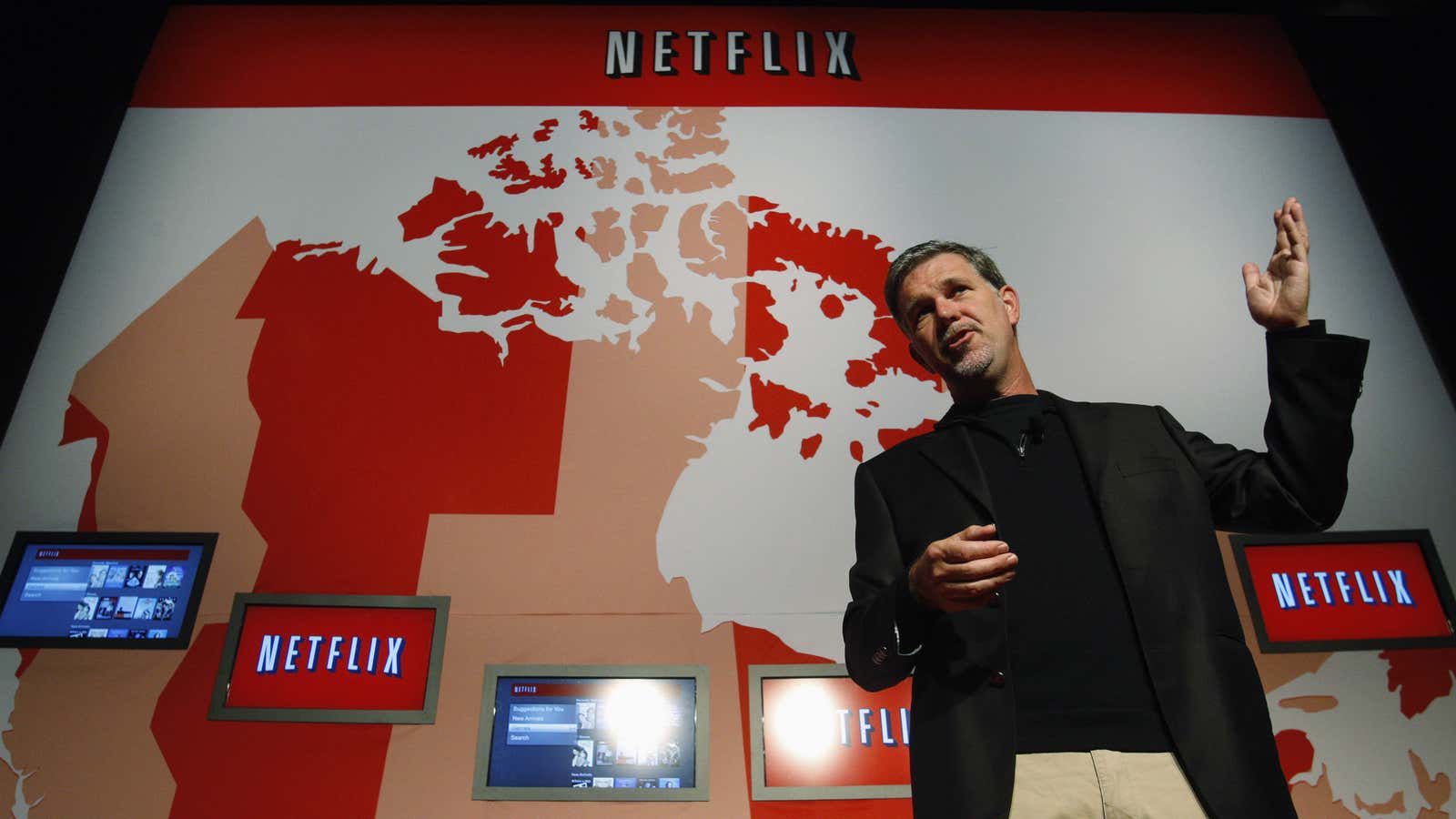People are starting to realize that Netflix’s movie streaming library is limited
Netflix began life as a DVD rental service, mainly for movies. But these days, its movie library is beginning to look increasingly limited, especially compared to what’s available a-la-carte, on services like iTunes, Google or Amazon, or even on-demand cable. As Reuters’ Felix Salmon pointed out last week, “Netflix probably has fewer movies available for streaming than your local VHS rental store had decades ago. At least if you’re looking only in the “short head” — the films everybody’s heard of and is talking about, and which comprise the majority of movie-viewing demand.”
It’s expanding its bets on original content, but those are risky
Last year, Netflix released five original series targeted at adults. Two, the Washington political thriller House of Cards and the jail-themed black comedy Orange is the New Black, were unequivocally successful. The remaining three, horror series Hemlock Grove, comedy Bad Samaritans, and the final season of cult classic Arrested Development, were met with mixed reviews.
This year Netflix is planning to double its investment in original content. What’s more, BTIG Research’s top prediction for 2014 (registration required) is that Netflix will enter the movie production business this year.
The brokerage firm said Netflix could create a high-profile movie, with a budget of $80 million, a “name” director and top-level talent (House of Cards was directed by David Fincher of The Social Network and Fight Club, and starred Kevin Spacey.) ”This would generate tremendous publicity and force the industry to deal with what appear to be increasingly antiquated business practices,” it said.
Yet while the company’s massive database of viewing preferences gives it a gigantic advantage over the older film studios in figuring out what shows and movies people like, making those shows is a very different—and much riskier—business to distributing them.
Its success in 2013 could come back to bite it unexpectedly
Netflix’s incredible share price surge in 2013 could work against the company in a couple of ways. One of the initial reasons for the stock’s run-up in 2013 was takeover speculation. But now that Netflix is three times as expensive, it’s difficult to see an Apple or a Facebook wanting to buy it. Carl Icahn has moved to cash in his chips, and the company has even abandoned its poison-pill takeover defense. Meanwhile, Salmon argues, Netflix’s lofty valuation could encourage film studios to try and charge it more for access to content.
It probably can’t expand much overseas
Netflix is already available in all of the Americas and the most English-speaking parts of Europe. It’s unlikely to break into Australia right now for licensing reasons. Without cutting deals for a lot more foreign-language content it probably couldn’t win many customers in other parts of Europe, Asia or the Middle East; and in English-speaking parts of Africa, not many people have sufficiently fast broadband.
So it could be forced to raise prices, or crack down on freeloaders
That’s why Netflix seems to be exploring ways to make more money out of its US user base, some of whom freeload on friends’ Netflix subscriptions. The company could either crack down on them, or raise prices modestly. The success of that move will be watched closely, as its last attempt at raising prices in 2011 was a disaster.
